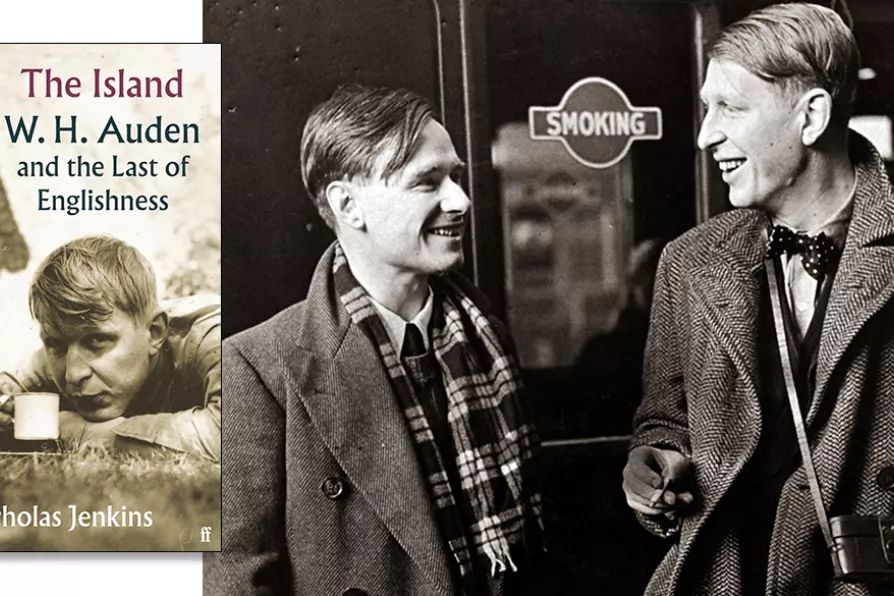Reviews of Habibi Funk 031, Kayatibu, and The Good Ones
The disillusion of an upper-class Caliban
GORDON PARSONS negotiates an exhaustive biography of WH Auden that explores his growing detachment from England

 THE TINTIN OF HIS ERA? WH Auden (R) and novelist Christopher Isherwood pictured at Victoria Station, 1938, en route to China. Attempting to combine reportage and art, they spent six months in 1938 visiting China amid the Sino-Japanese War, working on their book Journey to a War (1939), and subsequently emigrated to the US
[National Media Museum from UK/CC]
THE TINTIN OF HIS ERA? WH Auden (R) and novelist Christopher Isherwood pictured at Victoria Station, 1938, en route to China. Attempting to combine reportage and art, they spent six months in 1938 visiting China amid the Sino-Japanese War, working on their book Journey to a War (1939), and subsequently emigrated to the US
[National Media Museum from UK/CC]
The Island: WH Auden and the Last of Englishness
Nicholas Jenkins, Faber, £25
THE NEW YORK TIMES obituary of Wystan Hugh Auden in 1976 noted that “he was often called the greatest living poet of the English language.”
In one of his essays he claimed that “the only method of attacking or defending a poet is to quote him. Other kinds of criticism, whether strictly literary, or psychological or social, serve only to sharpen our appreciation or abhorrence by making us intellectually conscious of what was previously but vaguely felt.”
Similar stories

JENNY FARRELL pays tribute to the late Michael Longley, whose poetry, forged in the time of The Troubles, speaks to today’s wars

ALISTAIR FINDLAY welcomes a collection of essays from one of the cultural left’s most respected speakers and activists

RUTH AYLETT reviews two books of poetry, one by the Iranian American Marjorie Lofti, the other by the British Lebanese Omar Sabbagh

FIONA O’CONNOR recommends a biography of a Portuguese modernist poet who maintained a philosophical approach to his own being and is best encountered within the playfulness of his writing










